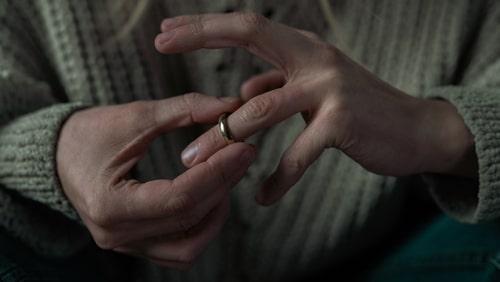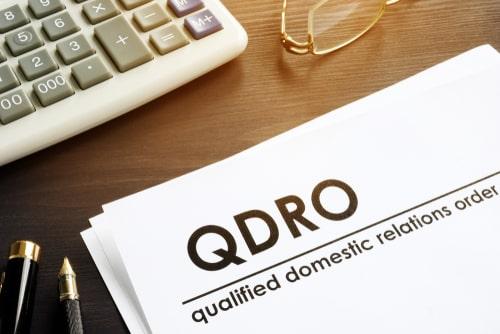630-462-9500
After Hour New Client Telephone Number 630-690-6077
1776 S. Naperville Road, Building B, Suite 202,
Wheaton, IL 60189
Recent Blog Posts
What You Should Look for When Hiring a Divorce Attorney
 Divorce can be one of the most challenging and stressful times in a person's life. Having the right divorce attorney by your side is essential to helping you navigate this strenuous process. But with so many attorneys, how do you select the right one? Today, we will discuss things to look for and keep in mind as you go about choosing a divorce attorn
Divorce can be one of the most challenging and stressful times in a person's life. Having the right divorce attorney by your side is essential to helping you navigate this strenuous process. But with so many attorneys, how do you select the right one? Today, we will discuss things to look for and keep in mind as you go about choosing a divorce attorn
ey.
Here is What You Should Look for in a Divorce Attorney
Look for these things when hiring a divorce attorney including:
-
Communication – Communication is critical in any legal case, especially in divorce. Look for an attorney who listens to your concerns, answers your questions, and keeps you informed. You should feel comfortable asking your attorney any questions you may have.
-
Availability – Ensure your attorney has the time and resources to handle your case. You do not want to hire an attorney who is too busy to give your case the attention it deserves. Ask about their availability and how quickly they respond to calls and emails.
How Social Media Can Affect an Illinois Divorce
 Social media has rapidly become a ubiquitous part of modern life, and divorce proceedings are no exception. With so many people sharing details of their personal lives online, social media can significantly impact divorce proceedings in many different ways. Today, we will be reviewing the positive and negative ways social media can affect divorces. If you are getting a divorce, contact an experienced divorce attorney to ensure you understand the process and that your rights are protected.
Social media has rapidly become a ubiquitous part of modern life, and divorce proceedings are no exception. With so many people sharing details of their personal lives online, social media can significantly impact divorce proceedings in many different ways. Today, we will be reviewing the positive and negative ways social media can affect divorces. If you are getting a divorce, contact an experienced divorce attorney to ensure you understand the process and that your rights are protected.
The Positive and Negative Ways Social Media Can Affect a Divorce
In some cases, social media can be a valuable tool for individuals going through a divorce. For example, social media can be used to gather evidence of infidelity, hidden assets, or other types of misconduct that may be relevant to divorce proceedings. Social media posts can also be used to establish behavior patterns or refute false accusations made by the other party.
Understanding How Certain Relationship Dynamics Make Mediation an Untenable Solution During Divorce
 Divorce mediation is a very popular alternative to traditional divorce litigation, as it can help couples reach a harmonious resolution in a more cost-effective and timely manner. However, regardless of the popularity of the method and its reputation as a great option for many couples, there are certain situations where divorce mediation may not be the best option for couples going through a divorce. Today, we will discuss situations when divorce mediation is not recommended. If you are interested in learning more about divorce mediation or want to pursue a divorce, contact an attorney to ensure you understand your legal options.
Divorce mediation is a very popular alternative to traditional divorce litigation, as it can help couples reach a harmonious resolution in a more cost-effective and timely manner. However, regardless of the popularity of the method and its reputation as a great option for many couples, there are certain situations where divorce mediation may not be the best option for couples going through a divorce. Today, we will discuss situations when divorce mediation is not recommended. If you are interested in learning more about divorce mediation or want to pursue a divorce, contact an attorney to ensure you understand your legal options.
When is Divorce Mediation a Futile Option?
Firstly, mediation is likely to be unsuccessful in cases where a significant power imbalance exists between the couple. For example, this situation can occur if one party has a dominant personality or is more financially stable than the other. In such cases, the weaker party may feel pressured to agree to terms not in their best interests, leading to an unfair settlement agreement.
A Concerned Parent: Helping Your Child Cope with a Divorce
 Divorce can be a difficult and stressful time for all involved, particularly for children who may be struggling to understand and cope with the changes that come with their parents separating. Parents must provide their children with emotional support and guidance during this time. Today, we will discuss some practical ways to help children cope with divorce and how such methods can be best utilized. If you are going through a divorce, make sure to contact a divorce attorney to help make the process as seamless and stress-free as possible.
Divorce can be a difficult and stressful time for all involved, particularly for children who may be struggling to understand and cope with the changes that come with their parents separating. Parents must provide their children with emotional support and guidance during this time. Today, we will discuss some practical ways to help children cope with divorce and how such methods can be best utilized. If you are going through a divorce, make sure to contact a divorce attorney to help make the process as seamless and stress-free as possible.
Consider These Ways to Help Children Cope with this Major Change in their Lives
Here are some ways you may be able to help your children get through this time of trial and tribulation, including:
-
Communication is vital – Open, honest, and frequent communication is crucial in helping children understand the situation and what is happening. Parents should try their best to ensure their children feel comfortable asking questions and expressing their feelings. It is important for parents to actively listen to their children, reassure them, and avoid blaming each other.
The Impact of Domestic Violence on Illinois Divorce Proceedings
 Domestic violence can have a significant impact on divorce proceedings in the state of Illinois. Domestic violence sufferers often face various challenges during divorce proceedings, including fear, trauma, and financial difficulties. Fortunately, Illinois law recognizes the impact of domestic violence on divorce cases and provides legal remedies for the sufferers of abuse, including orders of protection and restraining orders.
Domestic violence can have a significant impact on divorce proceedings in the state of Illinois. Domestic violence sufferers often face various challenges during divorce proceedings, including fear, trauma, and financial difficulties. Fortunately, Illinois law recognizes the impact of domestic violence on divorce cases and provides legal remedies for the sufferers of abuse, including orders of protection and restraining orders.
Today, we are going to discuss what some of those remedies are. If you are getting a divorce and have been abused or threatened, do not hesitate to contact a divorce attorney with experience working in these kinds of cases. Your attorney will work to ensure you and your children are protected.
Domestic Violence in Illinois Divorce Cases
Illinois is a no-fault divorce state. Neither party must prove fault or blame to obtain a divorce. However, domestic violence can still play a significant role in divorce proceedings. In domestic violence cases, the court will likely consider the abusive behavior when determining child custody, visitation, and more. When domestic violence is present in a marriage, it can make the divorce process more complicated and challenging. Domestic abuse sufferers may feel intimidated, afraid, and powerless, especially when forced to confront their abuser in court.
Considerations for Same-Sex Divorce in Illinois
 In Illinois, same-sex couples have the same legal rights as opposite-sex couples during a marriage or divorce. However, there are some unique legal considerations that same-sex couples should keep in mind when going through a divorce. Today, we are going to look into what some of those considerations are. If you are in a same-sex marriage and looking to get a divorce, consider contacting an experienced divorce lawyer who will ensure your rights remain protected and that you fully understand your legal options moving forward.
In Illinois, same-sex couples have the same legal rights as opposite-sex couples during a marriage or divorce. However, there are some unique legal considerations that same-sex couples should keep in mind when going through a divorce. Today, we are going to look into what some of those considerations are. If you are in a same-sex marriage and looking to get a divorce, consider contacting an experienced divorce lawyer who will ensure your rights remain protected and that you fully understand your legal options moving forward.
Essential Property Division Considerations for Same-Sex Couples Getting Divorced
One of the main issues that may arise in a same-sex divorce surrounds the division of property. Illinois is an equitable distribution state, meaning the marital property is divided fairly but not equally. This includes any assets or debts acquired during the marriage, regardless of whose name is on the title or account. Furthermore, same-sex couples may have a more complex financial situation due to the lack of federal recognition of their marriage before Illinois state legalization of same-sex marriage in 2013, which then went into effect in the state in 2014, and the nationwide legalization of same-sex marriage in 2015. Since many same-sex couples were cohabiting long-before same-sex marriage became recognized at the state and federal levels, determining what marital property can come with its challenges.
Understanding How Illinois Treats Inherited Property in a Divorce
 Divorce can be a complicated and emotionally charged process, and property division is often one of the most contentious issues. In Illinois, inherited property is generally considered separate property and not subject to division in a divorce settlement. However, some exceptions to this rule can make things more complicated. Today, we are going to discuss everything you need to know regarding inherited property in Illinois divorce settlements. If you are getting a divorce, it is in your best interest to hire a skillful divorce attorney to help ensure your rights are protected, and a favorable case outcome can be pursued.
Divorce can be a complicated and emotionally charged process, and property division is often one of the most contentious issues. In Illinois, inherited property is generally considered separate property and not subject to division in a divorce settlement. However, some exceptions to this rule can make things more complicated. Today, we are going to discuss everything you need to know regarding inherited property in Illinois divorce settlements. If you are getting a divorce, it is in your best interest to hire a skillful divorce attorney to help ensure your rights are protected, and a favorable case outcome can be pursued.
Important Considerations for Inherited Property in Illinois Divorce
As stated previously, when a person inherits property, cash, or similar assets, it is usually considered their separate property, which makes it exempt from division during divorce proceedings. However, in certain situations, inherited property may lose its status as separate property and become subject to division.
Key Steps to Protecting Your Credit During Divorce
 Understanding the financial implications of a divorce can be a highly daunting task. An area of particular concern may be how your divorce will impact your credit. Unfortunately, debt and the effect of debt on credit scores can be critical components of the divorce settlement. They can have a lasting impact on the financial well-being of both parties. Today, we will discuss what is most important to know regarding how to protect your credit most effectively during divorce proceedings. If you are getting a divorce and have concerns as to how your divorce may impact your credit, contact an experienced divorce attorney to help ensure that your rights remain protected and that you understand your options moving forward.
Understanding the financial implications of a divorce can be a highly daunting task. An area of particular concern may be how your divorce will impact your credit. Unfortunately, debt and the effect of debt on credit scores can be critical components of the divorce settlement. They can have a lasting impact on the financial well-being of both parties. Today, we will discuss what is most important to know regarding how to protect your credit most effectively during divorce proceedings. If you are getting a divorce and have concerns as to how your divorce may impact your credit, contact an experienced divorce attorney to help ensure that your rights remain protected and that you understand your options moving forward.
Essential Steps to Protecting Your Credit During Your Divorce
Here are some essential tips to consider if you want to protect your credit during your divorce. These tips include the following:
How are QDROs and QILDROs Used to Divide Retirement Assets in a Divorce?
 QDROs (Qualified Domestic Relations Orders) and QILDROs (Qualified Income Reduction Orders) are legal orders issued by a court to divide retirement assets between divorcing spouses. Today, we will discuss how these orders may be used in an Illinois divorce case. As always, if you are getting a divorce, consider consulting with a qualified attorney to guide you through the legal process.
QDROs (Qualified Domestic Relations Orders) and QILDROs (Qualified Income Reduction Orders) are legal orders issued by a court to divide retirement assets between divorcing spouses. Today, we will discuss how these orders may be used in an Illinois divorce case. As always, if you are getting a divorce, consider consulting with a qualified attorney to guide you through the legal process.
What is Most Important to Know About QDROs?
In Illinois, QDRO is a legal order that provides instructions for dividing a qualified retirement plan, such as a 401(k) or pension plan, in a divorce. QDROs are considered beneficial tools in protecting retirement accounts' tax benefits.
When a couple gets divorced in Illinois, any retirement benefits earned by either spouse during the marriage may be considered marital property subject to division. This means that the court may order that a portion of one spouse's retirement benefits be paid to the other spouse as part of the divorce settlement. To divide a qualified retirement plan, a QDRO is typically required to do this. The QDRO must be approved by the court and the administrator of the retirement plan. The QDRO will specify how the retirement benefits are divided between the parties, such as a percentage or a specific dollar amount. To be clear: you do not automatically receive a QDRO. You must request one, and the court must then approve the request.
Will I Receive a Greater Share of Assets During Divorce if My Spouse Cheated?
 No one begins their marriage with the expectation that it may one day end in divorce. Unfortunately, however, many marriages end this way. Today, we will discuss Illinois no-fault divorce laws and what that means for those seeking a divorce. We will also discuss how the dissipation of assets can play a role in divorce proceedings. If you are getting a divorce, consider contacting an attorney who will ensure your rights are protected and that a favorable case outcome can be pursued.
No one begins their marriage with the expectation that it may one day end in divorce. Unfortunately, however, many marriages end this way. Today, we will discuss Illinois no-fault divorce laws and what that means for those seeking a divorce. We will also discuss how the dissipation of assets can play a role in divorce proceedings. If you are getting a divorce, consider contacting an attorney who will ensure your rights are protected and that a favorable case outcome can be pursued.
What is No-Fault Divorce?
Illinois is one of the many states that has adopted the concept of no-fault divorce. This means that couples seeking to end their marriage in Illinois are not required to prove fault on the part of either party. Instead, the only grounds for divorce in Illinois are irreconcilable differences. Meaning even an issue such as infidelity cannot be brought forth as a reason for getting a divorce. This simplifies the divorce process and reduces the time, expense, and emotional strain of proving fault.




















